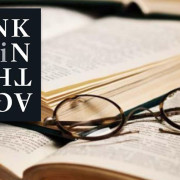Denouement
November 22, 1963
In the morning, LBJ tried to talk JFK into having Ralph Yarborough, his political adversary, in the Presidential car on the motorcade, rather than John Connolly, his political ally. JFK said no. Jackie heard their heated exchange.
Later in the morning, Richard Nixon boarded a plane, in Dallas, to fly home. As he embarked, he told reporters of rumors that JFK would remove LBJ from the upcoming re-election ticket.
In Washington, D.C., Dan Reynolds, who sold a life insurance policy to LBJ, began testifying to Congress about LBJ’s demands for kickback payments – purchasing advertisements on LBJ’s radio station and a stereo set for Lady Bird.
Carlos Marcello, New Orleans mafia boss, was in district court in New Orleans, fighting deportation by Attorney General RFK for falsifying his passport.
At 12:35 PM, shots rang out in Dealey Plaza.
As Mr. Reynolds was about to present incriminating documents, it was announced that JFK had been killed. “I guess you won’t need these. Giving testimony involving the Vice President is one thing, but when it involves the President, that is something else.”
While the Judge in the Marcello trial was instructing the jury, he was interrupted by news of JFK’s death. The verdict later that day was NOT GUILTY.
In Cuba, a French journalist, Jean Daniels, sat with Fidel Castro in a seaside villa at Varadero, Cuba. Some weeks prior, JFK learned of Daniel’s planned visit to see Castro, and asked Daniels to give Castro a message: “If you want peace, you must break with Moscow”. Daniels was to made to wait to see Castro . . .for 3 weeks. Then, on 11/21/63, they finally met. They talked until 4AM. Castro invited him to lunch the next day. During lunch, Castro received a call, and was told of JFK’s murder. “This is very bad news”. His fear was that he would be blamed.
In Paris, Rolando Cubela, a Cuban physician and leader in Fidel’s government, and a neighbor of Castro in Varadero, met with a CIA representative. He had secretly met with the CIA, before, stating that he wanted to defect. In Brazil, in September 1963, he had met with Desmond Fitzgerald of the CIA, who asked him to assassinate Castro. Rubella had conditions. He wanted a high powered rifle, and he wanted personal orders, directly from RFK. Many in the CIA suspected ‘a set up’. Fitzgerald gave RFK’s go-ahead anyway.
As Cubela was given a poison pen to use on Castro, news of JFK’s assassination arrived. He didn’t take the pen.
Two years later, in Cuba, Cubela was found guilty of espionage and was given a death sentence. Castro commuted the sentence, and sent him books while he was in prison. Cubela was released in 1979 and moved to Spain, where lives to this day.
Desmond Fitzgerald died of a heart attack, playing tennis, in 1967, as doubts of the Warren Report were in the news.
In Los Angeles, Aldous Huxley died of laryngeal cancer.
In Oxford, England, twelve minutes later, C. S. Lewis died of kidney failure. He spoke his last words: “We have no right to happiness”


